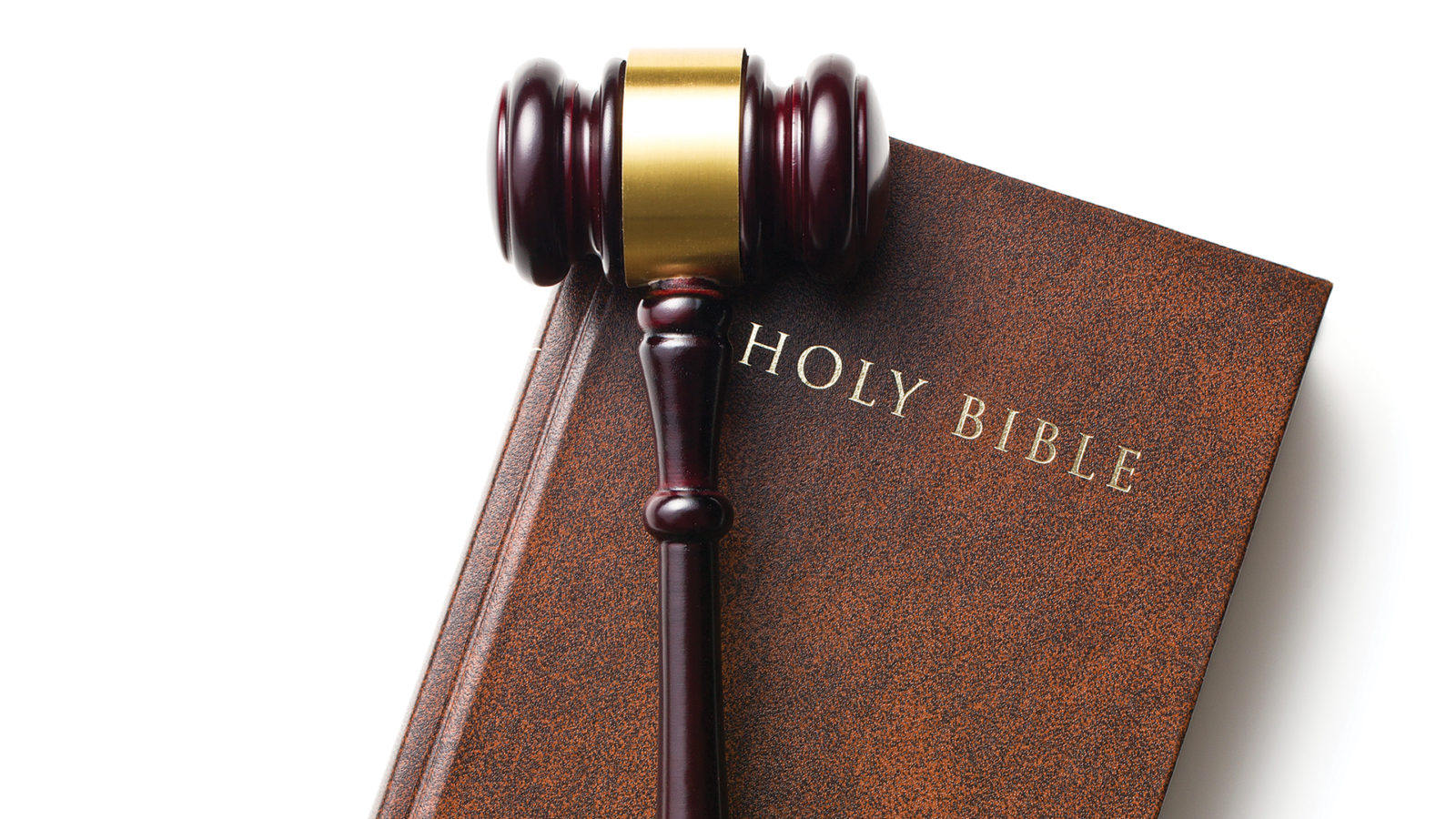Assurance of salvation is an issue for Seventh-day Adventists. Why?
Our doctrine of the investigative judgement may have something to do with it. Adventists teach that a cosmic investigative judgement is happening right now. It began in 1844 as the fulfilment of the time prophecy in Daniel 8:14. As the antitypical Day of Atonement, the heavenly sanctuary is being cleansed from our sins with the blood of Christ. In this process our individual records may come up any day to reveal our destiny.
Is the Adventist’s personal assurance of salvation undermined by the doctrine of the investigative judgement? This question has haunted Adventists for at least 40 years.
This article addresses pastoral concern regarding the investigative judgement doctrine, not its biblical accuracy.
Like most Christians, Seventh-day Adventists believe that salvation is not universal. Wondering whether we will be saved is legitimate. Salvation can be lost by the free action of the will.
The theological change necessary to remove any qualms about assurance is not changing the timing, duration or transparency of any judgement, but a change in basic understanding of salvation or free will.
To make salvation altogether independent of free will is the error of determinism. Calvinists believe that God arbitrarily decrees who will be saved and universalists believe everyone will be saved—regardless of individual preferences. Only universalism removes the question of assurance as a Calvinist can never quite be sure if they are truly predestined for salvation.
The truth of the gospel, on the other hand, provides true assurance. For someone anxious about their salvation, the answer is not keeping the commandments better (legalism) but belief in Christ’s righteousness.
The Adventist Church has always taught salvation by grace through faith. Christ is our righteousness. The part we play in our own salvation is to choose whether or not to believe in the good news of Jesus. This is not threatened by the investigative judgement doctrine.
There is a growing realisation that the investigative judgement is the logical outworking of two distinctive beliefs that help explain the uniqueness of Adventism’s pre-advent investigative judgement doctrine. The Adventist understanding of the mortality of the soul and our freedom to choose our salvation make a pre-advent investigative judgement quite sensible. The vast majority of Christianity can’t make sense of the timing of a pre-advent investigative judgement given their belief in an immortal soul. Investigation cannot make sense to the determinism of a Calvinist who believes that God unilaterally predestines who will be saved.
Picture a final-year high school student having nightmares about whether her exam scores are good enough to get her into studying medicine. The solution to removing the nightmares is not a change of the method, transparency or timing of the marking process. The solution would have to be one of changing or relaxing the entry requirements to remove the anxiety. The entry requirements could be changed to include accepting her choice to accept the perfect marks of a substitute on her behalf.
The equivalent, in this analogy, of simply removing the investigative judgement doctrine but keeping every other doctrine the same, is to do instantaneous examination by a super-computer in the split-second before university entrance scores are published. It should be obvious that such a change would actually do nothing to prevent the anxious student’s nightmares.
You may think an examination is actually irrelevant as “it was all done by the substitute”—analogous to the idea that “it was all done at the cross”. But this is burying one’s head in the sand: free will means salvation is not universal. There is still a decision to be made as to whether the substitute was accepted and trusted. What if the student plagiarised in the test? Would that be evidence that they actually trusted in the substitute? Wouldn’t an examination be helpful to transparently demonstrate trust and fairness?
An investigative judgement teaching devoid of Christ and His righteousness should attract pastoral concern. But we have established that the doctrine does not automatically undermine assurance. [pullquote]
What benefits does this doctrine bring to one’s Christian experience?
The investigative judgement actually resonates with human experience and desires. Our hearts desire fairness, full disclosure. A lot of the critics of the investigative judgement complain that people who have questioned the teaching have been silenced without a proper hearing.
I resonate with the desire for open, transparent dealings with questions, contradictory ideas and the people who hold them. That seems fairer than simply shutting down dissent and excluding dissidents.
God could instantly annihilate all opposition. But the beauty of His character is that He takes time to allow rebellion to demonstrate its true character and results for all to see. He also takes His time in investigation and judgement.
Critics of the investigative judgement doctrine tend to investigate its history and application, and cast judgement on it. Investigation and decision-making are natural and desirable processes in a life blessed with the freedom to choose.
How can the investigative judgement resonate when it is spatially removed from us? Let me go back to the illustration of the high school student and exam marking. Does she have any visibility of the exam-marking process between when it starts and when the university entrance scores are announced? No. Does she care that the process is open, transparent and auditable? Yes; she would be far less satisfied if the marking was done instantaneously by a “black-box” super-computer immediately before scores are announced. Especially if there was a background of accusations about the fairness of the super-computer.
Because Satan has questioned God’s fairness, the transparency of God’s judgements matters to us personally, even if our access to that transparency is not until after the decisions are announced.
To the rest of the universe, however, the timing positively needs to be before rewards are handed out. Wouldn’t you be concerned if God brought an unrepentant paedophile into your heavenly home? We’d actually want every work to be brought into judgement—whether good or bad—as promised in Ecclesiastes 12:13,14, Revelation 22:12, Romans 2:6 and 2 Corinthians 5:10. Especially since God doesn’t ever erase free will or the ability to rebel. Love does not become coerced for the rest of eternity; it just becomes guaranteed because all will see God’s transparent goodness in dealing with rebellion.
Judging every work isn’t about measuring the number of good and bad deeds against quotas. It is about ensuring that every work of evil is renounced—with Christ’s righteousness not only providing covering but also transformation of the heart.
The judgement isn’t really even about our behaviour (as we’d all be condemned if it was). It’s about whose we are. If we surrender our inadequacy to Jesus, we can’t be lost and we are “safe to save”.
So assessing each person’s level of “safety to save”—and God’s fairness in deciding so—is pertinent to ensuring the eternal security of the universe given the eternal persistence of moral freedom.
The investigative judgement powerfully demonstrates God’s character of love and freedom. I have greater assurance of both my own salvation and the eternal moral security of the universe, knowing that the judgements of God are not black-box instantaneous decrees but are transparent, deliberative and open.
Daniel Livingston attends Newcastle Adventist Church (NSW) with his wife and two young children. He works in environmental engineering.






